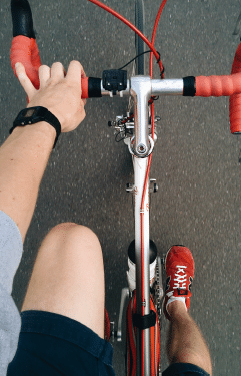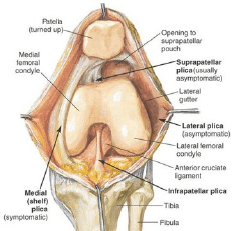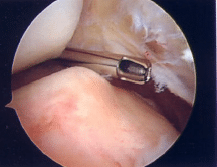
Plica is a term used to describe a fold in the synovial lining of the knee joint. Plica is a Latin word meaning “fold.” This term is a descriptive one; there is no evidence that true folding of the synovial lining occurs. The plica themselves are remnants of the fetal stage of development of the knee where it is initially divided into three compartments. The plicas normally shrink in size during the second trimester but don’t dis-appear completely leaving a shelf of tissue (“fold”) or plica where they originally existed.
Plica syndrome of the knee consists of a constella-tion of signs and symptoms that occurs secondary to inflammation of the plica usually caused by inju-ry or overuse. As noted, plica are normal struc-tures found in most knees. Normally plicae do not cause any problems. However, with the right com-bination of events, they can become quite painful.

A plica causes problems when it is inflamed. This can occur over a long period of time, such as when the plica is irritated by certain exercises, re-petitive motions, or kneeling. Activities that re-peatedly bend and straighten the knee, such as running, biking, or use of a stair-climbing machine, can irritate the medial plica.
Plica can also become irritated acutely after injury or trauma, such as a direct blow to the area around the medial plica. This can occur from a fall, getting kicked or hit during a sporting event or even from hitting the knee on the dashboard dur-ing an automobile accident. The injury to the knee can cause the plica to swell and become painful.
Treatment for medial plica syndrome are based on reducing the inflammation of the plica. Most people will get better with conservative treatment and will not require surgery, though older teenag-ers do not respond as well to conservative treat-ment.
Initial treatment consists of taking an anti-inflammatory medication, avoiding activities that irritate the knee, icing and possibly physical ther-apy with ultrasound and phonophoresis. If con-servative treatment options do not work then a cortisone (steroid) shot can be given directly into the plica or into the knee joint to decrease the inflammation. Each child is different, and your physician will suggest the best treatment option for the child.
Taking anti-inflammatory medicine or NSAIDS (non-steroidal anti-inflammatory drugs) such as Motrin, Advil, Naproxen or Aleve as directed by your doctor can be effective. This medication should be taken for 10 to 14 days to allow the medicine to reach therapeutic levels in the body.
Your doctor diagnoses medial plica syndrome based on your history, symptoms, clinical exam-ination, and x-rays. Although the plica is not visible on x-ray, x-rays may be ordered by your doctor to rule out other possible conditions. An MRI may show the plica but this is rarely needed.
No. There is not a 100% guaranteed method to prevent an active athlete from developing medi-al plica syndrome.
However, warming up before activity and stretching before and after activities may help to prevent medial plica syndrome.

If all conservative treatment options have been taken and the child is still experiencing pain, then arthroscopic surgery can be performed to remove the plica completely.